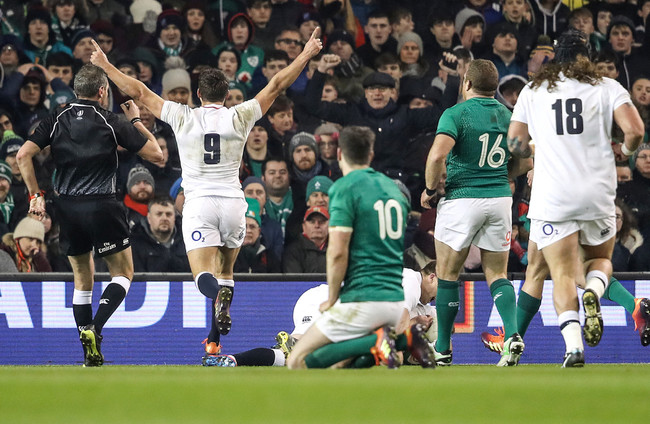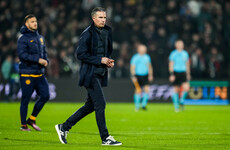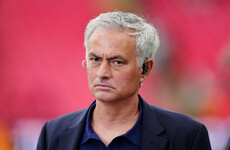Sean Farrell reports from the Aviva Stadium
THE NEXT TIME Ireland start a tournament campaign, it will be the World Cup. And only then will we find out if they have successfully solved the conundrum of their slow starts in tournaments.
Jonathan Sexton’s terrific drop-goal in Paris this time last year papered over numerous cracks that preceded it. A year earlier, the Edinburgh bus debacle occurred before a loss to Scotland and Wales took a draw from Dublin in 2016′s opening round.
Soldier Field later that year stands as a clear case for the contrary. But weighed against the 14-man win in the opening Test of a series in South Africa is the loss to the Wallabies in Brisbane or even the stodgy 2015 win over Italy in Rome.
Next weekend in Murrayfield will issue a reminder that there won’t be much room for a run-up when it comes time to do the business in Japan.
“I am frustrated that we do tend to start slow,” said Joe Schmidt, branching off from a list of reasons his sides were unable to make inroads into England during yesterday’s 20-32 loss.
“Looking further ahead, into the World Cup, we’ve got to hit the ground running. In November, Argentina wasn’t great, but we stepped it up the following week.
“Even last year in the Six Nations, I don’t think we were great against France. But we built our way into the competition and finished it off strongly. We’ve tended to finish Six nations strong, even going back to (2014 and 2015) winning in France and winning in Scotland and obviously England last year.
“But we’ve got to start better right from the start.”
In World Cup rugby, Schmidt’s side did manage a fast start at the World Cup in 2015 when a near full-strength side tore through Canada. The endgame of Ireland’s time in that tournament has rankled with Schmidt since, however.
The best approach to avoiding another in a long line of quarter-final exits is to avoid New Zealand. Ceding early momentum to Scotland in Pool A would all but confirm another dance with the All Blacks.
For now, the Six Nations still has a long way left to run. Ireland go into round two ahead of Italy by a points difference of +1. Even at this early stage, Henry Slade’s intercept try looks to be a hammer blow for Ireland’s title hopes as it made a losing bonus point impossible while giving England a try-scoring bonus to leave them and Scotland leading the way.
“We’ve got to come up with solutions for that,” Schmidt said of England’s street-wise kick-chase game and a breakdown which Ireland never got a handle on.
“When we can’t attack through carry because the ball is slow, you’ve got to be able to find the space behind, you’ve got to be able to go after them in the air. We couldn’t get access there either. It was difficult. We had double the penalties (4-8), but you’ve got to be able to capitalise on them.”












Colin Fennelly and Patrick Horgan are probably the two best full forwards in the country right now. Two completely different styles of play but two fantastic hurlers
@Fellainis Fro: Callanan is alright too
@Miguel Sanchez: Dead right, if there’s three above the rest, it’s them
@Fellainis Fro: What about Aaron Gillane!! The man is lethal. Look what he done that Tipperary full back line!!